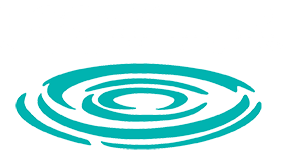Is Hard Water Harmful?
Most households in Calgary use hard water for their every day, for cooking, washing, cleaning and even for their business. Commercial water use is huge and takes up a lot of resources.
Would you like to know what hard water can do to our body, household appliances and fixtures.
Hard water is called as such because of its high content of minerals as compared to soft water. Minerals that are high content in hard water are:
- calcium and
- magnesium ions.
These minerals on their own do not really cause a lot of problem and can actually be beneficial to our health but when these minerals are heated they form into mineral deposits or more commonly known as “scales”.
A lot of homes use heat together with water whether it’s for washing, cooking or business purpose. So, the mineral deposits starts to form and this is when problems start. The “scales” or mineral deposits can destroy many homes, like clogging up pipes and when these pipes are clogged it can slow water pressure.
These “scales” caused by minerals in hard water can also act as heat exchanger, meaning, there is slower transfer of heat to the water making heater machines or equipment work over time thus causing it to overheat or blow up.
Signs of hard water in your household:
- When washing or bathing with heated hard water you might notice that there is a soapy film left on the skin making your skin feel dry and it can leave hair limp and dry
- You may also notice that bathroom floor and tiles or kitchen sinks might have white filmy scales that might need a lot scrubbing to get rid of
- When using hard water for boiling or brewing coffee or tea it may also affect the taste
- These “scales” can leave unsightly white residues on your pots or coffee machines.
If you use hard water for your business like owning a laundry mat or you have a swimming pool, hard water “scale” may cause you to change your equipment or machines sooner than necessary. This is because these mineral deposits can cause over heating since they act as heat exchanger and clog up pipes. The swimming pools that have hard water can give that milky appearance or a whitish film on the water.
What we can do to minimize hard water issues
But despite all these issues of mineral deposits or “scales caused by hard water being heated, there are some things we can do to minimize if not totally rid of its damaging effects. For one, try reducing the temperature of your heater thus reducing the formation of mineral deposits or “scales”. The less the mineral deposits the less clogging of pipes and heat exchanger that eventually will lead to break down of machines and equipment due to overheating.
Another useful tip is using rinsing agent that helps to remove the mineral deposits. There is a rinsing agent we can use that is an everyday item we can find in our kitchen: white vinegar. Dilute white vinegar with water and use it to remove mineral deposits on pots, dishwasher dispenser or even on your bathroom tiles and kitchen sinks.
To learn more about hard water, please contact EcoWater Calgary today! We offer a FREE water test!

